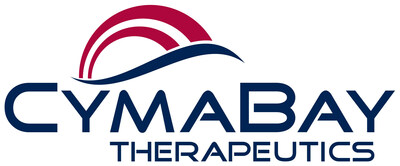CymaBay Therapeutics, Inc. (NASDAQ: CBAY), a biopharmaceutical company focused on innovative therapies for patients with liver and other chronic diseases, today announced the first published findings demonstrating the impact of seladelpar on serum interleukin-31 (IL-31) levels and its correlation with pruritus improvement in people with primary biliary cholangitis (PBC).
|
|
| [03-January-2024] |
|
-- First clinical trial in PBC to show coordinate reductions of IL-31, bile acids and pruritus -- NEWARK, Calif., Jan. 3, 2024 /PRNewswire/ -- CymaBay Therapeutics, Inc. (NASDAQ: CBAY), a biopharmaceutical company focused on innovative therapies for patients with liver and other chronic diseases, today announced the first published findings demonstrating the impact of seladelpar on serum interleukin-31 (IL-31) levels and its correlation with pruritus improvement in people with primary biliary cholangitis (PBC). Seladelpar is a first-in-class oral, selective PPARδ agonist being investigated for the treatment of patients with PBC. The latest findings from a post-hoc analysis of the Phase 3 ENHANCE study, were published today in the open access journal Hepatology and are the first peer-reviewed published report of a correlation in decreases in IL-31, bile acids and pruritus symptoms in PBC following treatment with an investigational agent. In a post-hoc analysis of the Phase 3 ENHANCE study, IL-31 serum levels were measured in people with PBC who received daily oral doses of seladelpar 5 mg (n=53), 10 mg (n=53) or placebo (n=55) for three months. IL-31 is a cytokine known to mediate pruritus and blocking IL-31 signaling can provide relief in pruritic skin diseases. Statistically significant dose-dependent decreases in IL-31 were observed with seladelpar 5 mg (-30%, p=0.0003) and 10 mg (-52%, p<0.0001) compared to placebo (+31%) in the study. IL-31 levels correlated with pruritus intensity using a numerical rating scale (NRS, 0-10; r=0.54, p<0.0001). Participants who experienced an improvement in pruritus (decrease in NRS of 2 or more) demonstrated greater dose-dependent reductions in IL-31 compared to those without pruritus improvement (decrease in NRS of less than 2). Baseline IL-31 levels also closely correlated with total (r=0.54, p<0.0001) and conjugated bile acids (up to 0.64, p<0.0001). Strong correlations were also observed between changes in IL-31 levels and changes in total bile acids (r=0.63, p<0.0001) and conjugated bile acids in the seladelpar 10 mg group. "Pruritus is a debilitating symptom for many people living with PBC, yet the underlying mechanism of itch is not well understood," said Andreas Kremer MD, Ph.D., MHBA, Professor and Head of Hepatology, University Hospital Zurich and primary author of the study. "These latest data are critical in advancing our understanding of potential mediators of cholestatic itch and suggest that IL-31 may have a role in driving pruritis in people with PBC. While current treatments for cholestatic pruritus remain limited, these data can help inform potential novel therapeutic approaches." About PBC About Seladelpar For further information, the ENHANCE Post-Hoc Analysis can be accessed here: Kremer, Andreas E.; Mayo, Marlyn J.; Hirschfield, Gideon M.; Levy, Cynthia; Bowlus, Christopher L.; Jones, David E.; Johnson, Jeff D.; McWherter, Charles A.; Choi, Yun-Jung. Seladelpar treatment reduces interleukin-31 and pruritus in patients with primary biliary cholangitis. Hepatology ():10.1097/HEP.0000000000000728, December 20, 2023. | DOI: 10.1097/HEP.0000000000000728 About CymaBay Cautionary Statements For additional information about CymaBay visit www.cymabay.com. Public Relations Contact: Theresa Dolge Investor Relations Contact: PJ Kelleher
SOURCE CymaBay Therapeutics |
||
Company Codes: NASDAQ-SMALL:CBAY |





